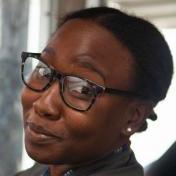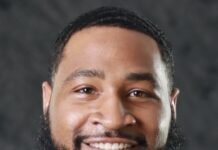 A year ago, a team of researchers from the School of Ocean Science and Engineering at the University of Southern Mississippi, believed they had found the wreckage of the ship Clotilda, in the waters south of Mobile, Alabama. In 1860, the ship is believed to be the last vessel to import slaves into the United States, more than 50 years after the international slave trade had been abolished.
A year ago, a team of researchers from the School of Ocean Science and Engineering at the University of Southern Mississippi, believed they had found the wreckage of the ship Clotilda, in the waters south of Mobile, Alabama. In 1860, the ship is believed to be the last vessel to import slaves into the United States, more than 50 years after the international slave trade had been abolished.
Timothy Meaher, a landowner and shipbuilder from Mobile reportedly made a $1,000 bet that he could smuggle a ship full of slaves into Mobile. He designed a unique vessel that would allow the ship and its illegal cargo to go undetected by federal officials. The ship brought 109 slaves from what is now Benin in West Africa to Alabama. Meaher reportedly burned and scuttled the ship to destroy evidence of his crime.
Written accounts by the ship’s captain and the enslaved Africans provided a detailed account of the voyage and the ship itself. Zora Neale Hurston’s book Barracoon: The Story of the Last “Black Cargo” (Amistad, 2018) tells the story of Cudjo Lewis, one of the last survivors from the group of enslaved Africans who were aboard the Clotilda.
The team of researchers at the University of Southern Mississippi conducted a hydrographic survey of the Mobile River and found 10 possible shipwrecks that might be the Clotilda. They further narrowed down their search. After conducting x-ray tests, undertaking several dives at the site, comparing building materials and dimensions, along with references and descriptions that had been provided by the Africans who were on the ship, a group of peer reviewers now have unanimously concluded that the wreckage was the Clotilda.
 Kandice Gunning, a member of the research team and a Ph.D. student in hydrography at the University of Southern Mississippi, stated that “the history surrounding U.S.-Africa slave trade, the ship and the people onboard holds great cultural, political and historical significance. Specifically, for those who are descendants of its journey, this discovery may help bring closure and healing. I could imagine that from generation to generation this story was passed on. A story of a culture’s past that desperately needed a final chapter. I am glad that we could help provide some help with the contents of the last few paragraphs of that final chapter.”
Kandice Gunning, a member of the research team and a Ph.D. student in hydrography at the University of Southern Mississippi, stated that “the history surrounding U.S.-Africa slave trade, the ship and the people onboard holds great cultural, political and historical significance. Specifically, for those who are descendants of its journey, this discovery may help bring closure and healing. I could imagine that from generation to generation this story was passed on. A story of a culture’s past that desperately needed a final chapter. I am glad that we could help provide some help with the contents of the last few paragraphs of that final chapter.”











